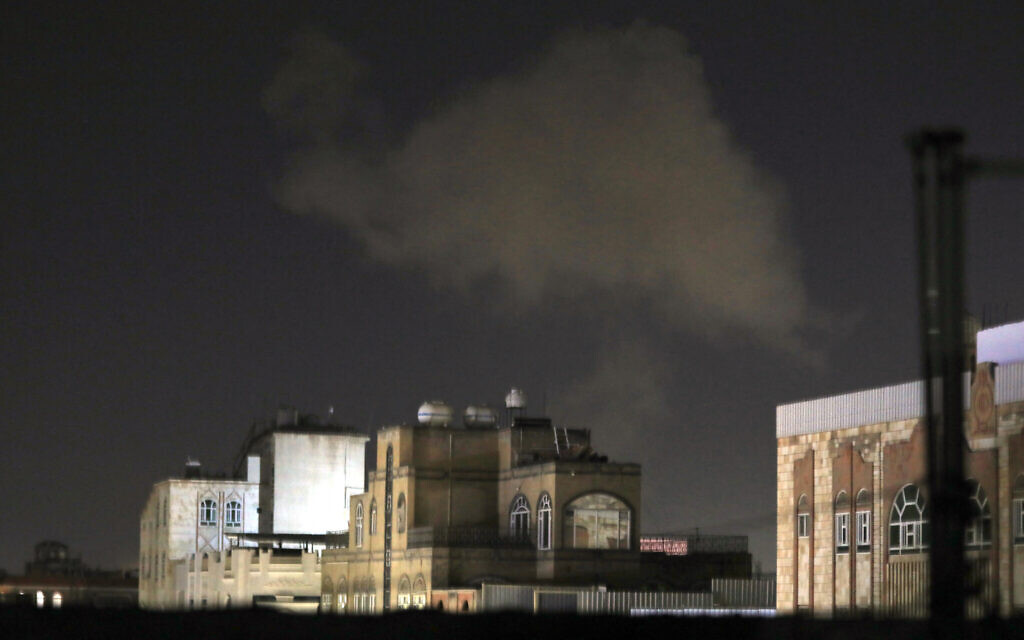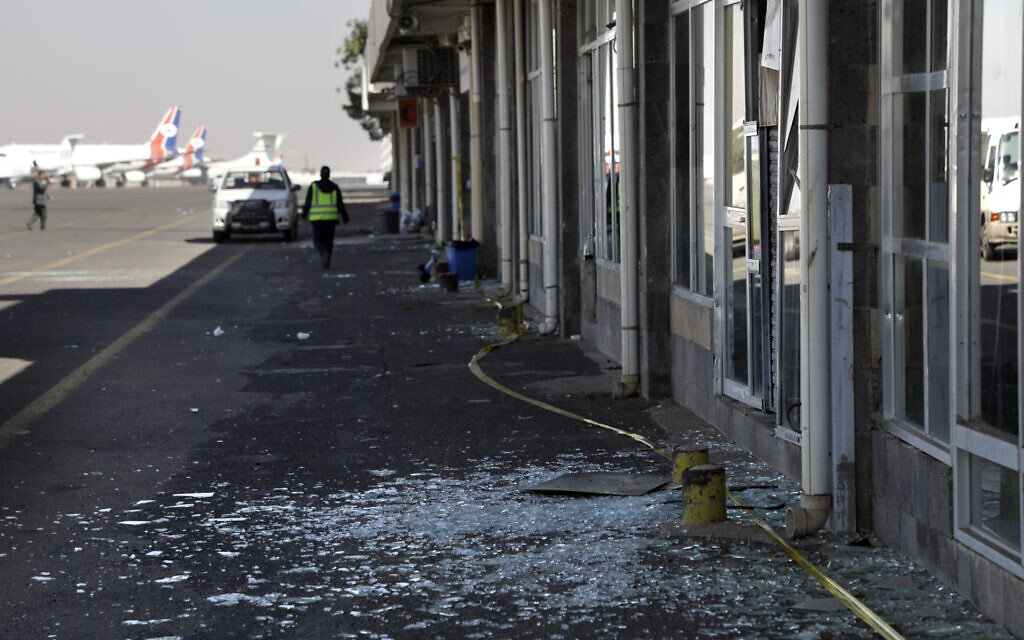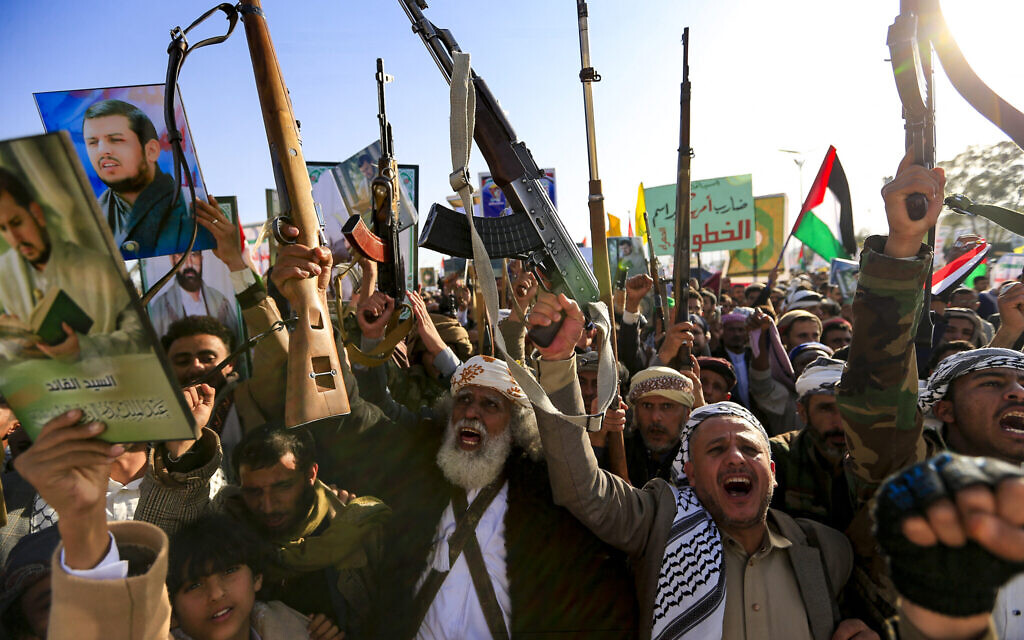



Air defenses intercepted a missile fired from Yemen that triggered sirens in the Jerusalem and Dead Sea areas early Saturday morning, the military said, in the sixth such overnight attack on the center of the country in less than two weeks.
The missile was intercepted outside of Israeli airspace and the sirens were activated according to protocol for fear of falling debris, the military added, without specifying whether was an Israeli or American system that intercepted the missile.
An American missile defense system battery participated in the interception of a Houthi ballistic missile launched at Israel from Yemen early Friday morning, the first time the system was used since being deployed by the US in Israel in October.
The Magen David Adom ambulance service said there were no reports of injuries in the latest attack from Yemen, apart from one person suffering from acute anxiety.
Sirens blared in dozens of towns and cities in the Jerusalem area and the southern Negev amid the incident, including Jerusalem, Latrun, Arad and the Dead Sea area.
It was not immediately clear what the target of the attack was. Most previous Houthi missile strikes have targeted Eilat or the Tel Aviv area.
The Houthis, a rebel group that is dedicated to the destruction of Israel and Jews, have launched more than 200 missiles and 170 drones at Israel in the past year, according to the IDF. The vast majority did not reach Israel or were intercepted by the military or Israel’s allies in the region.
Rocket and drone alert sirens triggered by attacks from Yemen have sent millions of Israelis running for shelter in the middle of the night almost every night for the past 10 days.
The attack came hours after the Houthis said fresh airstrikes had hit Yemen’s rebel-held capital Sanaa on Friday, after they claimed to have carried out new attacks on Israel. Israeli air raids hit Sanaa International Airport and other targets in Yemen on Thursday.
“I heard the blast. My house shook,” one Sanaa resident told AFP late Friday.
It was not immediately clear who was behind the latest strike, but the Houthis blamed it on “US-British aggression.”
There was no immediate comment from Israel, the United States or Britain.
Despite the damage at Sanaa airport, flights resumed at 10:00 a.m. (0700 GMT) on Friday, Huthi Deputy Transport Minister Yahya al-Sayani said.
“The airport tower has been directly hit in addition to the departure lounge and airport navigation equipment. The attack resulted in four dead until now and around 20 wounded from staff, airport and passengers”, Sayani said.
The strikes left the top of the control tower a bombed-out shell, and large windows in the airport building were shattered.
Sanaa airport, which reopened to international flights in 2022 after a six-year gap, offers a regular service to Jordan’s capital, Amman, on the Yemenia airline.
Alongside the attacks on Israel, the Iran-backed group has carried out repeated missile and drone attacks on some 100 merchant vessels attempting to traverse the Red Sea, forcing many carriers to avoid the key waterway and hamstringing global shipping. The Houthis initially said they were going to attack Israel-linked ships but few of the vessels targeted had ties to Israel.
Israeli “aggression will only increase the determination and resolve of the great Yemeni people to continue supporting the Palestinian people,” a Houthi statement said Friday.
Tens of thousands of people gathered in Sanaa Friday to protest against the Israeli strikes and express solidarity with Palestinians.
The Houthis have vowed to keep up the attacks until the end of the war in the Gaza Strip that began on October 7, 2023, when the Palestinian terror group Hamas led a devastating attack on Israel that killed 1,200 people and saw 251 taken hostage to Gaza.



